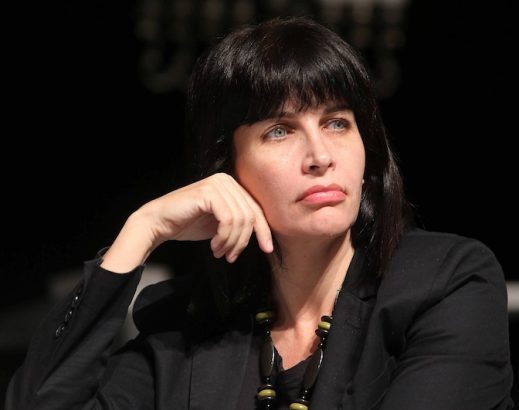The shared histories of feminism and Zionism
Feminism and Zionism are cut from the same cloth. Both movements emerged from the same intellectual and political origins, they both exhibited similar growth trajectories, becoming two of the most successful revolutions to sweep and survive through the 20th century, both continue to face ferocious backlash, and both remain vibrant and necessary in the 21st century.
Feminism and Zionism are daughters of the enlightenment. They were born of that intellectual revolution against the inevitability of the human condition as one subject to a hierarchical, divinely ordained order, underpinned by a religious system and elaborate theology. Feminism and Zionism are rebellions against that order. They are both part of the modern overthrowing of a pre-modern order in which each living creature, born into a station and role in the superstructure of society, remains in that role, carries it out dutifully and does not challenge it. Feminism and Zionism are infused with resistance against the pre-Enlightenment idea that how you are born should determine how you die.
Feminism and Zionism are ongoing rebellions against millennia-long power structures that assigned women and Jews a ‘proper place’ in society. For women, it was an order dating back to the beginnings of the agricultural era, that simultaneously enabled and necessitated their control as child bearing properties. For Jews, it was a theological, and by extension social, assignation of their inferior role by the two civilisations that emerged from Judaic monotheism, but also claimed to supersede it: Christianity and Islam. Having made the claim to be the bearer of a new truth, in the form of a new testament or a new uncorrupted prophecy, the two civilisations could not but develop an adverse attitude toward those Jews who refused conversion and rejected the claims of both these civilisations to be the better and truer interpretations of the original scriptures. Naturally, Christianity — the more direct descendant of Judaism — was more ferocious in its theological and social loathing to those remaining Jews who still would not accept Christ. But Islam too was clear in its theology, as well as legal, social, and symbolic structures, that Jews, even when tolerated, were certainly not, and could not be, the equals of Muslims.
Entire cultural structures — civilisations — were built on the edifice of female and Jewish inferiority — so much so, that these themes in their multitude of expressions were transparent to those who were raised into those structures. Themes that emphasised female submission and exalted the limited role assigned to women were reinforced in a myriad of ways from the minutest social norms, to legal structures, to almost every form of cultural output from poetry to painting to children’s stories. It was this near endless replication of only one possible model of female human life that created a sense of inevitability. If one is born a woman destined to do one thing — bear children to her master, then one inevitably lives her life and dies a woman, having done only this one thing (if she is lucky), and it is by this thing alone that her entire value is judged.
Themes that emphasised the moral failure of the Jew were the staple of Christian and some Muslim cultural creations — from Scriptures to paintings to children’s tales to linguistic idioms. Since the continued existence of the Jews implied a rejection of Christianity and Islam, the Jew could not be conceived of as a moral being choosing wisely between good and evil. At best, Jews could be tolerated as relics, headed for the dustbin of history, against the inevitable progress of Christianity and Islam. At worst, their continued existence was an intolerable offence, necessitating the exaction of a price. Most commonly, their inferior status, vulnerability, and persecution served as evidence to the fate that awaits those who persist in their rejection of the true path.
Feminism and Zionism challenged all that. They were both forms of refusal to accept the role that others have assigned to women and Jews. They were forms of self-assertion that cried out: I refuse to be seen how you wish to see me, I refuse to be that which you want me to be, I am not your inferior, I can be so much more than I am allowed to be, and I insist on being free to explore and make the most of my humanity.
Human agency and self-definition a prerequisite
In that, feminism and Zionism were built on self-definition and human agency. Both these movements could emerge only once the secular and radical idea that human beings, individually and collectively, are masters of their fate, was introduced. Once human beings could be conceived of as active agents of historical change, rather than passive receivers of divine fate, women and Jews could begin to formulate the notion that even if one might be dealt some of the worst cards in history, and by a whole lot of dealers, it does not mean that there is nothing to be done.
Something could be done, but for feminism and Zionism to challenge power structures that have existed for millennia and been predicated on women and Jews ‘knowing their place,’ they could only do so on the footsteps of the modern political revolutions embodying the ideals of liberty, equality, and group solidarity. True, neither women nor Jews were to be included initially in the ideals of equality, but once the ideal of the liberty of human beings from submission, the essential equality of human life, and the necessity of group solidarity and mobilisation for achieving these goals were introduced, it was impossible to prevent these ideas from being adopted even by those whom the revolution did not initially expect to include.
Feminism and Zionism arose from anger at this kind of hypocrisy. Feminism and Zionism developed as those claiming to espouse the ideals of equality and liberty and solidarity twisted themselves into ideological and religious knots to justify keeping women and Jews out of this new world. Feminism and Zionism came into their own as the logical trajectory of equality among human beings could not but be extended to those who could also lay legitimate claim to being human beings, even if somewhat different from the mould.
It was the growing ability of women and Jews to lay claim to being human beings worthy of equality and liberty, as well as their ability to mobilise their respective groups to make that claim, that made the success of their revolutions possible. As women became more literate and educated, with direct access to knowledge, it became harder to justify their exclusion from that which was considered worthy only of the literate — such as the right to vote or to attain higher education. Once women had the right to vote and they became highly educated it became harder and harder to exclude them from other areas of life.
For Jews, as the promise of integration and emancipation into European society led them to greater achievements from science to art to literature, their continued exclusion under the guise of the new ‘scientific’ ideology of anti-Semitism, rather than plain old Christian or Islamic theology, became ever less tolerable. As Theodor Herzl and other Jews, who initially believed that they were lucky enough to live in an age of progress, equality, and tolerance, when they would no longer be excluded from full participation in the dominant society by virtue of being Jews, came to realise that while Europe spoke of equality, it failed to practice it. They realised that their true emancipation and liberation from dependency on others would only be possible when they are truly masters of their fate, collectively governing themselves in a state of their own.
The rise of feminism and Zionism
Alas, feminist women and Zionist Jews proved themselves ingrates. The more they attained, the more they wanted. Unable to celebrate what they were given, they exhibited an annoying tendency to not just care about being somewhat better off than before but to actually want true equality. It was a tendency that was often resisted by women and Jews themselves, who feared that the fragile achievements they already had would be endangered by movements that insisted on pressing ever forward. The ‘problem’ with feminism and Zionism was that no matter how successful they were, what achievements they brought about for women and Jews, it never seemed to be enough.
This was especially exasperating to some, given that feminism and Zionism were two of the most successful revolutions to emerge from enlightenment thinking. What began as insane ideas of a mad few, became, over a breathtakingly short time, more broadly accepted. The achievements of both movements in each turn were remarkable, and of a nature that only a short while earlier would have been considered unthinkable and impossible. Wherever and whenever feminism and Zionism swept through societies, they turned them upside down and inside out. By changing the very image of what it means to be a woman or what it means to be a Jew, it forced change on societies and civilisations that were predicated on a very specific and limited image of what it meant to be either of those things.
That change was not always welcome. In fact, it was resisted at every turn, often violently, even ferociously. The more power — of various kinds — was amassed by women and Jews, the more their rise felt like an offence to the ‘proper order of things’. The challenge of feminism and Zionism to millennia-long power structures was never going to go over unchallenged. It is in the very nature of power that no-one, ever, gives it up willingly and easily. If women and Jews seemed unable to know ‘their proper place’ and intent on demanding more, then they must be placed back in ‘their proper place,’ and if needed, by force.
It is, therefore, no coincidence that wherever and whenever women and Jews grew in prominence, their rise was met with increasing violence. The so-called Icelandic paradox of a country where women have the most rights and face the greatest incidents of domestic violence is no paradox at all. The fact that the greatest forms of violence against Jews came against the backdrop of their growing success and prominence is no accident either. Even in the lands of Islam, where Jews historically were better treated than in Christian lands (not a particularly high bar…), ‘trouble [to the Jews] arose when Jews were seen to be getting too much power,’ writes Bernard Lewis in The Jews of Islam. Lewis explains that ‘when a persecution occurred … the usual argument was that the Jews had violated the pact by overstepping their proper place’. Therefore, it is no accident, he argues, that ‘it is during the 19th and 20th centuries, when the dhimmis [protected Jews] were no longer prepared to accept or respect the rules, that the most violent and bloody clashes have occurred’.
Direct violence has not been the only method by which the backlash against the aspirations of women and Jews to equality has been implemented. Various insidious ways, mostly transparent to those who grew up under cultural expressions designed to signal the proper place for women and Jews, were employed. From ‘The Beauty Myth’ to religious ‘modesty’ to sinister anti-Zionist intellectual assaults, entire cultures and civilisations were mobilised to drive a wedge between the ‘Good Woman’ and the ‘Bad Feminist,’ between the ‘Good Jew’ and the ‘Bad Zionist’.
The difference between the Good and the Bad? Power. A ‘Good Woman’ does not aspire to power; in fact, she feels uncomfortable with it and would be more than happy to forgo it. A ‘Good Jew’ feels queasy with manifestations of Jewish power, and in the face of raw expressions of it rushes to declare his or her renunciation of Zionism. It is no accident that the forms of female and Jewish expressions that are most mocked, criticised, and denigrated are those that involve the expression of power. If the revolutions of feminism and Zionism are ever to be stalled, and even rolled back, women and Jews must come to feel uneasy with power.
Feminism and Zionism as transformational
It might be baffling to a 21st-century reader why movements that sought nothing more than equality should continue to face such ferocious backlash. Equality has come to sound so benign, obvious, a taken-for-granted marker of modern society. But when one understands that true equality leads inexorably to a redistribution of power and resources, then it becomes quite understandable why to ‘those accustomed to privilege, equality feels a whole lot like discrimination’. To those young enough to never have known a world where and when equality was not the norm, it is even more difficult to appreciate the hangover effect of historical power structures. Young men in the West might no longer individually think that women are their inferiors, but they would need to exhibit remarkable blindness to argue that they do not inhabit a world in which the social structures, norms, and cultural output were shaped by this assumption. Young people who have only always known a powerful state of Israel might fail to comprehend how the obsession of large parts of Western and Islamic civilisation with Israel is an expression of their inability, still, to come to terms with Jewish power, and are therefore prone to confusing cause and effect — thinking that the Western and Islamic obsession with Israel is about what Israel does, rather than about what Israel is: an expression of Jewish self-mastery and power.
It is in the nature of feminism and Zionism that they cannot rest until they have reached true equality: until the resources of power are redistributed so that women and Jews are no longer ever in danger of being put ‘back in their place’. This can only be achieved with the transformation of the civilisational systems that have determined what that ‘proper place’ is. This is why feminism does not stop with education, voting, reproductive rights, equal pay at work, and safety at work. The more it gains, the more it exposes how entrenched the assumption of female inferiority is in the structures of society, and the more it presses onward do dismantle them. This is why Zionism has not ended with the establishment of a state for the Jewish people, because the idea of equal sovereign Jews, governing a share of the Earth’s land on their own, continues to be ferociously resisted by the large swaths of the two civilisations that were built on the assumption of Jewish disappearance, often with the declared intention of rolling back that Jewish ‘transgression’ in the form of the State of Israel.
Feminism and Zionism started out as revolutions for changing the fate of women and Jews, but as they grew in power and faced growing backlash, they became revolutions for civilisational transformation. Neither feminism nor Zionism will or could rest until new civilisations — entire cultural systems — emerge to replace those that were predicated on the assumption of female and Jewish otherness and inferiority. Not until almost all men feel completely at ease with the idea of powerful women, and most Westerners and Muslims feel at ease with the idea of powerful Jews could these revolutions call it a day, and neither should they.
This article originally appeared in Tablet magazine, at tabletmag.com, and is reprinted with permission.






































I have only one quarrel with this excellent article. It is that Zionism is, at its root, a product of religious Judaism: Zion (Israel, Jerusalem) is only important to Jews in that context; otherwise a Jewish state in Uganda or the Americas (both suggested at the outset) would be just as viable. The fact that attempts to build and sustain Jewish statehood anywhere else failed can be seen as a vindication of that root.